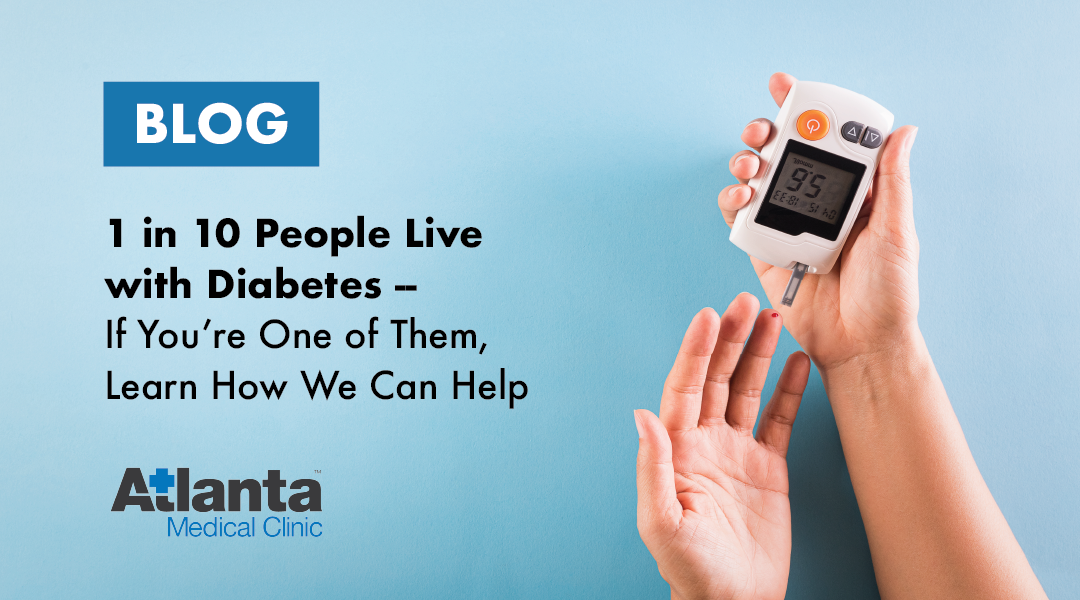
by Atlanta Medical Clinic | Sep 16, 2024 | Blog, Diabetic Treatment, Diabetic Wounds, Lifestyle
Are you looking for diabetic wound care in Atlanta? Whether you’re dealing with open sores or a major foot ulcer, it’s important to seek the right treatment. By addressing the condition early on, you can prevent symptoms from worsening. At Atlanta Medical...

by Atlanta Medical Clinic | Nov 8, 2023 | Blog, Diabetic Treatment, Neuropathy
Diabetic neuropathy is a type of nerve damage that often occurs in those with diabetes. Although medication can help control the symptoms, diet plays an important role in managing blood sugar levels and slowing the progress of neuropathy. Here’s what you need to...

by Atlanta Medical Clinic | May 16, 2023 | Blog, Diabetic Treatment, Pain Management
If you’ve been recently diagnosed with diabetes or suspect that you may be developing the condition, you probably already know that blood sugar control will be a necessary part of your life — but what about other strategies designed to maintain optimal health...

by Atlanta Medical Clinic | Dec 13, 2022 | Blog, Diabetic Treatment, Neuropathy
Do you ever experience tingling in the fingers and toes, numbness, or feelings of fire and ice in your legs? These are some common symptoms of neuropathy: a complex condition that shares many symptoms with other medical conditions such as multiple sclerosis. Because...

by Atlanta Medical Clinic | Nov 8, 2022 | Blog, Diabetic Treatment
As a clinic dedicated to providing the most innovative and effective diabetes treatments available today, the team at Atlanta Medical Clinic commits to the fight against diabetes each and every day. Now, with this month officially designated American Diabetes Month,...

by Atlanta Medical Clinic | Sep 9, 2022 | Blog, Diabetic Treatment
Over 37 million Americans have diabetes, and nearly 10 million of those remain undiagnosed. The condition is a disorder of metabolism that diminishes a patient’s quality of life. Without proper care, patients face a higher risk of complications like high blood...







